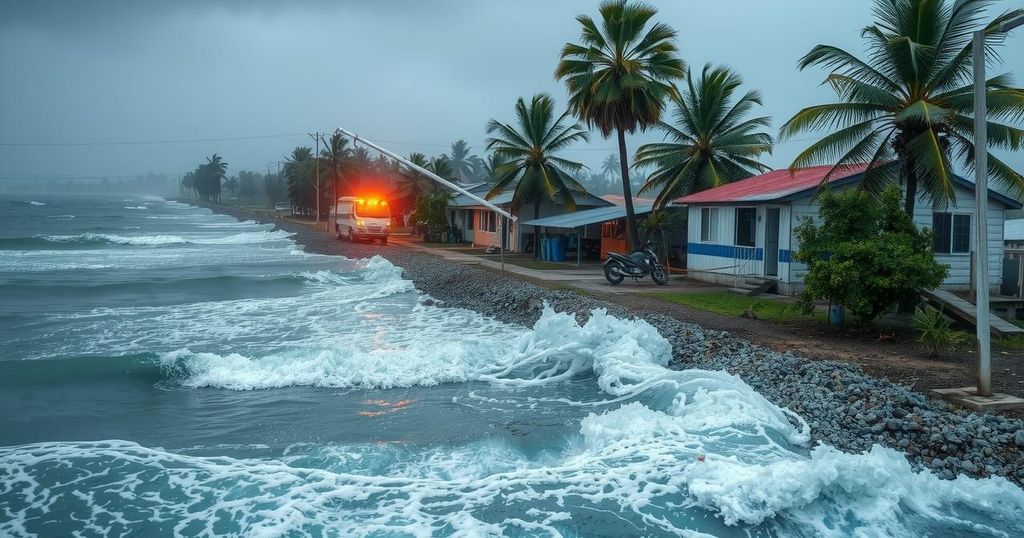Mozambique Humanitarian Crisis: Current Challenges and Urgent Needs
Mozambique is facing severe humanitarian challenges, with 3.3 million people experiencing acute food insecurity and 2.3 million in need of assistance. The recent Tropical Cyclone Chido has compounded crises, resulting in 73 deaths and exacerbating existing conflicts and displacement. Approximately 10 percent of the population is projected to face crisis-level food insecurity, with needs rising amid ongoing instability.
As of January 2024, Mozambique is facing a severe humanitarian crisis marked by acute food insecurity affecting 3.3 million individuals from November to February. According to reports from the United Nations, 2.3 million people require humanitarian assistance, with the International Organization for Migration (IOM) documenting 717,000 internally displaced persons (IDPs) within the country. The situation has been further complicated by the landfall of Tropical Cyclone Chido on December 15, resulting in at least 73 fatalities and approximately 329,500 individuals needing urgent support. The cyclone has intensified pre-existing vulnerabilities linked to ongoing conflicts, disease outbreaks, and displacement scenarios across the region.
In the northern province of Cabo Delgado, violence from non-state armed groups (NSAG) has escalated, leading to increased displacement and significant protection concerns while hindering humanitarian access to afflicted populations. Furthermore, the food security situation is dire, with estimates suggesting that around 10 percent of the population will experience crisis-level acute food insecurity during the upcoming lean season, primarily due to earlier depletion of food stocks following unsatisfactory harvests. Agencies such as FEWS NET have played a crucial role in monitoring and reporting these distressing trends, highlighting the urgent need for coordinated humanitarian responses.
Mozambique has been grappling with multifaceted challenges, including natural disasters, conflict, and ongoing health crises. The recent report cites critical data from various humanitarian organizations indicating a major food insecurity crisis and a high number of IDPs driven by armed conflict. The season from November to February traditionally poses serious food security risks, exacerbated this year by adverse climatic conditions and uncertainties related to agricultural productivity. The impact of Tropical Cyclone Chido has further strained already limited resources, increasing reliance on humanitarian assistance.
In summary, Mozambique is experiencing a complex emergency characterized by acute food insecurity, significant displacement due to conflict and natural disasters, and urgent humanitarian needs. The ramifications of Tropical Cyclone Chido have magnified existing vulnerabilities, necessitating immediate and coordinated responses from international humanitarian agencies to alleviate the suffering of those most affected. As conditions worsen, ongoing efforts will be vital in addressing both immediate needs and long-term recovery strategies for the affected populations.
Original Source: reliefweb.int




Post Comment